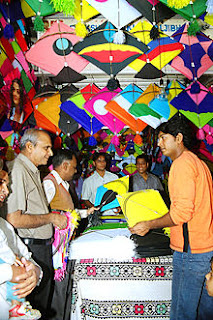UN Chief Ban Ki-Moon
Ban Ki-moon .( born 13 June 1944) is the eighth and current Secretary-General of the United Nations, after succeeding Kofi Annan in 2007. Before going on to be Secretary-General, Ban was a career diplomat in South Korea's Ministry of Foreign Affairs and in the United Nations. He entered diplomatic service the year he graduated from university, accepting his first post in New Delhi, India. In the foreign ministry he established a reputation for modesty and competence.
Ban was the Foreign Minister of the Republic of Korea from January 2004 to November 2006. In February 2006, he began to campaign for the office of Secretary-General. Ban was initially considered to be a long shot for the office. As foreign minister of South Korea, however, he was able to travel to all of the countries that were members of the United Nations Security Council, a maneuver that turned him into the front runner.
On 11 October 2006, he was elected to be the eighth Secretary-General by the United Nations General Assembly and officially succeeded Annan on 1 January 2007. Ban has led several major reforms regarding peacekeeping and UN employment practices. Diplomatically, Ban has taken particularly strong views on Darfur, where he helped persuade Sudanese President Omar al-Bashir to allow peacekeeping troops to enter Sudan; and on global warming, pressing the issue repeatedly with former U.S. President George W. Bush. Ban has received strong criticism from OIOS, the UN internal audit unit, stating that the secretariat, under Ban's leadership, is "drifting into irrelevance".
In 2011, Ban ran unopposed for a second term as Secretary-General. On 21 June 2011, he was unanimously re-elected by the General Assembly and therefore will continue to serve until 31 December 2016.
Biography
Ban was born in Eumseong in a small farming village in North Chungcheong, in 1944 at the end of the Japanese rule of Korea. His family moved to the nearby town of Chungju, where he was raised. During Ban's childhood, his father had a warehouse business, but the warehouse went bankrupt and the family lost its middle-class standard of living. When Ban was six, his family fled to a remote mountainside for the duration of the Korean War. After the war ended, his family returned to Chungju. Ban has mentioned meeting U.S. military troops at this time.
In secondary school (Chungju High School), Ban became a star pupil, particularly in his studies of English. In 1952, he was selected by his class to address a message to then UN Secretary-General Dag Hammarskjöld, but it is unknown if the message was ever sent. In 1962, Ban won an essay contest sponsored by the Red Cross and earned a trip to the United States where he lived in San Francisco with a host family for several months. As part of the trip, Ban met U.S. President John F. Kennedy. When a journalist at the meeting asked Ban what he wanted to be when he grew up, he said, "I want to become a diplomat.
He received a B.A. in International Relations from Seoul National University in 1970, and earned a Master of Public Administration from the John F. Kennedy School of Government at Harvard University in 1985.At Harvard, he studied under Joseph Nye who remarked that Ban had "a rare combination of analytic clarity, humility and perseverance. Ban was awarded the degree of Doctor of Laws (Honoris Causa) by the University of Malta on 22 April 2009 He further received an honorary degree of Doctor of Laws from the University of Washington in October 2009.
In addition to his native Korean, Ban speaks English, French, and Japanese. There have been questions, however, regarding the extent of his knowledge of French, one of the two working languages of the United Nations Secretariat.



Comments
Post a Comment